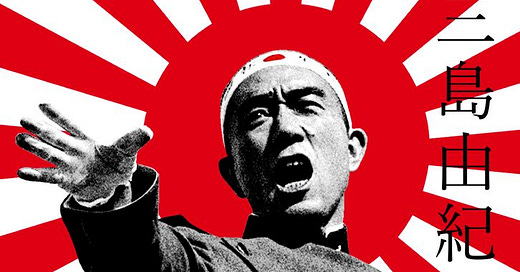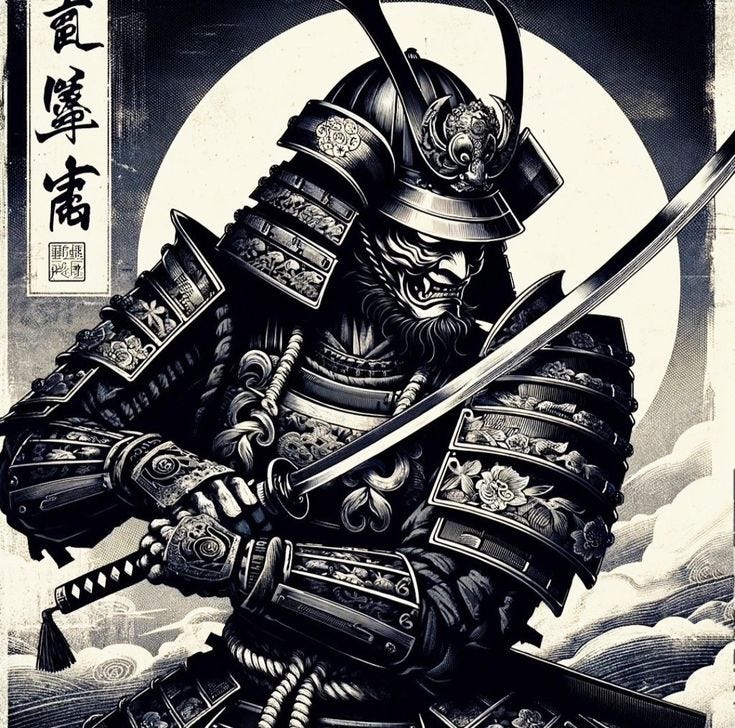Welcome to the second edition of the Write & Lift, no-read Book Club. If you would like to get access to book club essays and join our weekly discussion group on Saturday, upgrade your membership below. For paying members, the link to this week’s meeting is at the bottom of the essay.
In “Sun and Steel”, Yukio Mishima confronts the commonly held illusion that reality is best understood through the intellect. An illusion that posits that truth; what guides our disasters and triumphs, peaks and valleys of emotion, are born from an exploration in the mind.
Divided into two parts, Sun and Steel is presented as a philosophical treatise; a documentation of the physical and philosophical transformation Mishima underwent as a young man. What he found, was that words fail. But the body doesn’t lie. The physical form is an expression of nature, where the intellect can only describe shades of reality.
The sense of truth and beauty that Mishima describes in varying ways throughout the book, pivots away from the Enlightenment systems and moral doctrines dug into the bedrock of Western thought. Like Nietzsche, Mishima’s concept of truth is bound to an eternal and stripped-down understanding of our nature. The body is an expression of power and beauty. And it is through the body, that we can only understand our mind.
The hero archetype of our myths and legends reflects this primitive subconscious truth about the body. For Mishima, hero worship is a reflection of this truth. Only the hero can live eternally and die with nobility.
“Sun”, begins by describing Mishima’s struggle with frailty and illness during his youth and his shifting perspective on the limits of the mind. Bookish and effeminate as a young man, Mishima built a literary and philosophical understanding of the world. But the abstract, as it often does, became a series of revolving doors. One question is answered, and another two appear. The mind begins to fool itself into thinking that its addiction to the validation of mere thought, is leading somewhere profound and revealing. As Mishima accounts firsthand, writers and thinkers who descend into this spiral become stranded from the truth of nature. Isolated farther even than the peasant whose days are spent shucking corn and whistling folk songs without the inclination to think about “truth”. This is, as Mishima puts it, the corrosive power of words. Words do not need to depict reality. Words transform reality into abstractions so that the mind can contemplate it. In this process, words shift reality away from the truth of the physical form.






